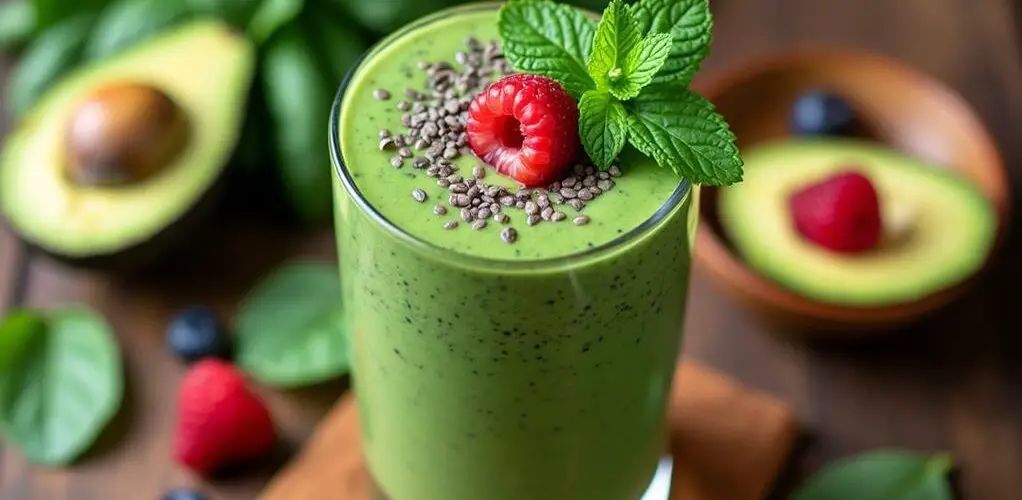
To alleviate constipation on a keto diet, increase water intake to 9-13 cups daily and replenish electrolytes. Consume fiber-rich foods like leafy greens, seeds, nuts, and avocados. Incorporate psyllium husk for added fiber, and include fermented foods to boost gut health. Gradually reduce carb intake to minimize digestive discomfort and monitor dairy consumption to avoid potential issues. Regular exercise stimulates bowel movements, and magnesium supplements can aid in muscle relaxation and stool softening. A holistic approach, combining dietary adjustments and lifestyle changes, effectively manages constipation on a ketogenic diet. Explore detailed strategies for ideal digestive health.
Key Takeaways
- Increase daily water intake to 9-13 cups to improve hydration and prevent constipation.
- Incorporate fiber-rich foods like leafy greens, chia seeds, and avocados to enhance bowel movements.
- Engage in regular physical activity, such as 150 minutes of moderate exercise weekly, to stimulate intestinal contractions.
- Consume fermented foods like kimchi and sauerkraut to boost beneficial gut bacteria and digestive health.
- Ensure adequate magnesium intake through foods or supplements to promote muscle relaxation and ease bowel movements.
Increase Water Intake
Ensuring adequate water intake is paramount when following a keto diet, as proper hydration is integral to supporting digestion and preventing constipation. Adults should aim for a daily intake of 9 to 13 cups of water, especially given the reduced glycogen stores associated with low carbohydrate intake, which can lead to dehydration.
Effective hydration strategies include consuming warm or room temperature water to enhance absorption and digestion, and incorporating herbal teas and bone broth, which can contribute both fluids and essential nutrients.
Additionally, replenishing electrolytes, such as potassium and magnesium, can further aid in maintaining hydration and overall digestive health. Monitoring urine color is an important indicator of hydration status; dark urine often signals the need for increased water consumption.
Additionally, when increasing dietary fiber—a common practice to alleviate constipation on a keto diet—it is vital to adjust water intake accordingly. Fiber requires ample fluid to facilitate proper stool formation and movement through the digestive tract.
Incorporating water-rich foods, such as cucumbers and zucchini, can also bolster hydration efforts. These foods not only provide necessary fluids but also essential vitamins and minerals.
Eat More Leafy Greens
Incorporating a generous amount of leafy greens into your diet is a highly effective strategy for promoting digestive health while following a keto regimen. Leafy greens, such as spinach, kale, and Swiss chard, are low in carbohydrates and high in fiber, making them ideal for maintaining digestive health on a keto diet.
Consuming at least 2-3 cups of these greens daily can help achieve the recommended fiber intake of 25 grams for women and 38 grams for men, which is essential for preventing constipation. The high water content in leafy greens also aids in hydration, which can soften stools and reduce the risk of constipation often associated with low-carb diets.
Adding leafy greens to your meals also guarantees you are getting important nutrients like magnesium, which promotes muscle relaxation in the digestive tract and facilitates smoother bowel movements. Additionally, these greens are nutrient-dense and provide essential vitamins and minerals, supporting overall health.
Incorporating a variety of leafy greens into your daily meals not only supports gut health but also provides beneficial antioxidants and phytochemicals. These compounds enhance overall digestive function, making leafy greens a cornerstone of a well-balanced keto diet.
Incorporate Seeds and Nuts
Incorporate Seeds and Nuts
Seeds and nuts, such as chia seeds, flaxseeds, almonds, and walnuts, serve as excellent sources of essential fiber and healthy fats, making them valuable components of a keto diet aimed at alleviating constipation. Incorporating seed varieties like chia and flaxseeds can greatly boost fiber intake. Chia seeds provide about 10 grams of fiber per ounce, while flaxseeds offer approximately 8 grams per ounce. This fiber is vital for digestion and stool formation, facilitating smoother bowel movements.
Nuts, particularly almonds and walnuts, also contribute to dietary fiber and healthy fats. Almonds contain around 3.5 grams of fiber per ounce, and walnuts offer about 1.9 grams. These nut blends not only help mitigate constipation but also enhance nutrient intake, including magnesium, which is important for muscle relaxation and bowel movements. Almonds, for example, provide approximately 76 mg of magnesium per ounce.
Additionally, digestive enzymes can further aid in breaking down fats and proteins, enhancing nutrient absorption and supporting smoother bowel movements.
To incorporate these into your diet:
- Add ground flaxseeds to smoothies or baked goods
- Snack on a small handful of mixed seeds and nuts
- Sprinkle chia seeds on yogurt or salads
- Use almond or walnut butter as a spread
These practices guarantee you meet daily fiber goals, promoting digestive health while adhering to a low-carb, keto lifestyle.
Add Avocado to Meals
Enhancing your meals with avocado can be a game-changer for maintaining digestive health on a keto diet. Avocado is a nutrient-dense, high-fiber food, offering approximately 9 grams of fiber per 100 grams. This notable fiber content is essential for preventing constipation, a common issue on a keto diet. The recommended daily fiber intake is 25 grams for women and 38 grams for men, and incorporating avocados can help meet these goals.
The healthy monounsaturated fats in avocados also support digestion by lubricating the intestines, promoting smoother bowel movements. Additionally, avocados are low in carbohydrates, containing only about 2 grams of net carbs per 100 grams, making them an ideal choice for keto enthusiasts.
Below are some avocado recipes utilizing different avocado varieties to enhance your meals:
| Avocado Varieties | Recipe Ideas |
|---|---|
| Hass | Avocado Salad |
| Fuerte | Avocado Smoothie |
| Bacon | Avocado Toast |
Adding avocados to salads, smoothies, or as a topping for other dishes not only enriches flavor and texture but also provides essential nutrients that support gut health. Incorporating a variety of avocado recipes into your daily meals can greatly enhance your fiber intake and improve digestive health while adhering to keto dietary guidelines.
Use Psyllium Husk
Psyllium husk, a soluble fiber, can be a valuable addition to a keto diet for alleviating constipation by absorbing water in the intestines, resulting in bulkier and softer stools.
A typical dosage ranges from 5 to 10 grams mixed with at least 8 ounces of water, taken one to three times daily.
Ensuring adequate hydration is essential when using psyllium husk to prevent further constipation and maximize its effectiveness.
Fiber Supplement Benefits
Often overlooked, fiber supplements can be an essential asset for those struggling with constipation on a keto diet. Psyllium husk, a soluble fiber, offers several benefits for promoting digestive health. By absorbing water and expanding in the gut, psyllium husk adds bulk to the stool, which aids in maintaining stool consistency and preventing the hardening of stools—a common issue with low-fiber diets like keto.
Incorporating 5 to 10 grams of psyllium husk daily can greatly improve bowel regularity. This fiber supplement is low in net carbs, making it suitable for those adhering to the keto diet while ensuring adequate fiber intake.
Additionally, regular use of psyllium husk promotes gut health by supporting the growth of beneficial gut bacteria, which enhances overall digestive function.
Key benefits of psyllium husk supplementation include:
- Improving bowel regularity: Helps maintain consistent, softer stools.
- Enhancing digestive health: Supports the growth of beneficial gut bacteria.
- Low in net carbs: Suitable for keto dieters.
- Easy to incorporate: A simple addition to daily routines.
2. Dosage and Usage
When considering the benefits of fiber supplementation, understanding the proper dosage and usage of psyllium husk is essential for maximizing its effectiveness.
Psyllium husk, a soluble fiber, can alleviate constipation on a keto diet by adding bulk to the stool and promoting regular bowel movements. The recommended dosage guidelines for adults typically suggest 1 to 2 teaspoons of psyllium husk mixed with at least 8 ounces of water, taken once or twice daily. It is prudent to start with a smaller amount to assess individual tolerance before gradually increasing the dose.
Adequate hydration is vital when using psyllium husk. Consuming at least 8-10 cups of water daily is necessary to prevent potential choking or blockage in the digestive tract, as the fiber expands within the gut.
Additionally, psyllium husk can be conveniently added to smoothies, yogurt, or keto-friendly baked goods to help meet daily fiber intake goals of 25 grams for women and 38 grams for men.
Regular use of psyllium husk may also support gut health by promoting the growth of beneficial gut bacteria, which can be disrupted by the low-fiber nature of a keto diet.
Adhering to these dosage guidelines guarantees safe and effective constipation relief.
Practice Physical Activity
Engaging in regular physical activity is an essential strategy for alleviating constipation on a keto diet. Physical movement can stimulate intestinal contractions, promoting bowel regularity.
Cardio benefits, derived from aerobic exercises such as jogging, cycling, or swimming, are particularly effective in enhancing overall digestive health. These activities also improve mood and reduce stress, indirectly aiding in the prevention of constipation. Additionally, stable blood sugar levels maintained through ketosis can prevent energy crashes, which further supports regular physical activity and digestive health.
Incorporating post-meal walks into your daily routine can greatly improve digestion. Light exercise after meals helps move food through the digestive tract, encouraging regular bowel movements.
Strength training is another valuable component; it builds muscle mass, which increases metabolic rate and enhances gastrointestinal function, mitigating the risk of constipation.
To maintain healthy digestion and prevent constipation on a keto diet, it is advisable to aim for at least 150 minutes of moderate-intensity aerobic activity or 75 minutes of vigorous-intensity activity each week.
Consider integrating the following activities into your routine:
- Walking for at least 30 minutes a day: Stimulates intestinal contractions.
- Jogging, cycling, or swimming: Aerobic exercises that promote digestive health.
- Post-meal walks: Improve digestion and encourage bowel regularity.
- Strength training exercises: Increase metabolic rate and enhance gastrointestinal function.
These strategies collectively support digestive health, complementing the benefits of a ketogenic diet.
Try Fermented Foods

Incorporating fermented foods such as kimchi, sauerkraut, and kefir into your keto diet can offer significant gut health benefits.
These probiotic-rich foods enhance digestive function by boosting the levels of beneficial bacteria and digestive enzymes in the gut.
Additionally, they support the production of short-chain fatty acids, which are essential for maintaining overall digestive health and reducing constipation.
Gut Health Benefits
Enhancing gut health through the inclusion of fermented foods like kefir, sauerkraut, and kimchi can be a game-changer for those on a keto diet. These foods are rich in probiotics, which promote a balanced microbiome and improve digestion.
The probiotic diversity found in these foods is vital for reducing gut inflammation and supporting overall digestive health.
Incorporating fermented foods into a keto diet provides additional dietary fiber, aiding in alleviating constipation symptoms commonly experienced on this restrictive diet. The probiotics in fermented foods help support bowel regularity by increasing stool frequency and consistency.
- Kefir: A fermented milk drink rich in diverse probiotics that enhance gut health.
- Sauerkraut: Fermented cabbage that provides beneficial bacteria and essential fiber.
- Kimchi: A spicy fermented vegetable dish that boosts probiotic intake and supports a healthy microbiome.
- Probiotic Supplements: Alternatively, supplements can offer similar benefits for those who may not enjoy fermented foods.
Regular consumption of these foods not only aids digestion but also improves nutrient absorption, significant for individuals on a keto diet.
Boost Digestive Enzymes
Boosting digestive enzymes through the integration of fermented foods into a keto diet can markedly enhance digestive efficiency and reduce constipation.
Fermented foods such as kimchi, sauerkraut, and kefir are rich in probiotics, which can enhance gut health and improve digestion by promoting the growth of beneficial bacteria in the intestines. These beneficial bacteria play a significant role in increasing enzyme production, essential for breaking down fats and proteins effectively, thereby reducing the risk of constipation commonly associated with a high-fat, low-carb diet.
The fermentation process itself contributes to the breakdown of complex carbohydrates, making it easier for individuals on a low-carb diet to digest and utilize the remaining nutrients. This increased bioavailability of nutrients can alleviate some of the digestive issues encountered on a keto diet.
Additionally, the fermented benefits include supporting regular bowel movements by enhancing the overall health of the gut microbiome.
Regular consumption of fermented foods, consequently, not only facilitates better nutrient absorption but also promotes a balanced gut environment, contributing to improved digestion and mitigating constipation.
Incorporating these foods into a keto regimen can be a strategic approach to maintaining digestive health and overall well-being.
Gradually Reduce Carbs
Shifting to a keto diet necessitates a careful and gradual reduction of carbohydrate intake to prevent digestive issues, such as constipation. A sudden drop in carbs can disrupt the gastrointestinal tract, making a gradual adaptation essential.
Experts suggest decreasing carb consumption by 5-10 grams per week, allowing the body to adjust seamlessly. This method, often referred to as carb cycling, helps in minimizing the likelihood of constipation and other digestive discomforts. The keto diet has been shown to improve metabolic health by shifting the body's fuel source from glucose to fat, which can also help regulate appetite hormones and support digestive health.
To guarantee a smooth shift, consider incorporating the following strategies:
- Include high-fiber, low-carb foods: Leafy greens, broccoli, and avocados can promote regular bowel movements.
- Monitor daily carb intake: Aim to gradually lower consumption to the recommended 20-50 grams per day.
- Stay hydrated: Adequate water intake is critical as lower carbohydrate levels can lead to dehydration, further exacerbating constipation.
- Plan balanced meals: Integrate a variety of nutrient-dense foods to maintain overall digestive health.
Gradually reducing carbs while maintaining hydration and fiber intake can greatly enhance digestive comfort. This meticulous approach not only aids in preventing constipation but also supports a sustainable and healthy shift to a keto lifestyle.
Monitor Dairy Intake

In addition to gradually reducing carbohydrates, another key consideration for preventing constipation on a keto diet is monitoring dairy intake.
Dairy products are frequently consumed on keto due to their high-fat content, but they can also contribute to constipation, particularly in individuals with lactose sensitivity. Approximately 65% of adults experience reduced lactose digestion after infancy, and this intolerance can exacerbate digestive issues, leading to harder stools and discomfort.
High-fat dairy options such as cream and cheese are often low in fiber, which is essential for maintaining regular bowel movements. When these low-fiber dairy products dominate the diet without adequate fiber-rich foods, constipation can become a significant concern.
To mitigate this, individuals can explore dairy alternatives like lactose-free dairy products or plant-based options such as almond milk, coconut yogurt, and cashew cheese.
These alternatives not only reduce the risk of lactose-related digestive issues but also encourage the inclusion of high-fiber, low-carb foods like leafy greens and nuts.
Consider Magnesium Supplements
Magnesium plays a pivotal role in muscle relaxation and bowel movement regulation, making it a valuable supplement for those on a keto diet experiencing constipation.
Magnesium citrate, in particular, is known for its laxative properties and can effectively promote softer stools and regular bowel movements.
A daily intake of 310-320 mg for women and 400-420 mg for men is recommended, but consulting with a healthcare provider before starting supplementation is essential.
Benefits of Magnesium
For individuals adhering to a ketogenic diet, ensuring adequate magnesium intake is fundamental to maintaining digestive health and preventing constipation. Magnesium plays an essential role in promoting bowel regularity by relaxing the muscles of the gastrointestinal tract. A deficiency in this important mineral can exacerbate constipation symptoms, making supplementation particularly important for those on a high-fat, low-carb diet that may limit magnesium-rich foods.
Magnesium sources, such as leafy greens, nuts, and seeds, often fall short in a strict keto regimen. Therefore, considering magnesium supplements becomes a practical and effective option. Magnesium citrate, in particular, is known for its efficacy as a natural laxative, drawing water into the intestines to ease bowel movements.
The benefits of maintaining adequate magnesium levels include:
- Muscle relaxation: Helps relax gastrointestinal muscles, reducing spasms and promoting smoother bowel movements.
- Hydration balance: Draws water into the intestines, softening stool and aiding in easier passage.
- Nutrient absorption: Supports overall nutrient absorption, enhancing digestive efficiency.
- Alleviation of deficiency symptoms: Addresses magnesium deficiency, which can exacerbate constipation and other health issues.
Ensuring you meet the recommended dietary allowance of 320 mg for women and 420 mg for men is crucial for optimal digestive health on a keto diet.
Proper Dosage Guidelines
Considering the potential benefits of magnesium supplements for alleviating constipation on a ketogenic diet, determining the proper dosage is vital. Magnesium supplements, especially magnesium citrate, can effectively promote bowel movements due to their natural laxative effects. The general recommended dosage ranges from 200 to 400 mg per day. However, it is important to consult a healthcare provider for personalized advice, as individual needs may vary.
Starting with a lower dosage and gradually increasing it can help identify the best amount for digestive health, while avoiding high doses that might cause diarrhea. Adequate hydration is also necessary to enhance the effectiveness of magnesium in relieving constipation. Additionally, incorporating magnesium-rich foods such as avocados, nuts, and leafy greens can help meet the recommended daily intake of 310-320 mg for women and 400-420 mg for men.
| Magnesium Source | Dosage (mg) | Dosage Effects |
|---|---|---|
| Magnesium Citrate | 200-400 | Laxative effect |
| Avocados | ~58 | Nutrient-rich |
| Nuts (e.g., almonds) | ~76 | Heart-healthy |
| Leafy Greens (e.g., spinach) | ~157 | Antioxidant-rich |
Proper supplementation and dietary choices can greatly aid in maintaining digestive health on a ketogenic diet.
Frequently Asked Questions
How to Ease Constipation on Keto?
To ease constipation on keto, emphasize hydration importance by drinking 9-13 cups of water daily. Enhance digestive health with fiber-rich, keto-friendly vegetables, regular physical activity, and magnesium-rich foods while monitoring high-fat dairy intake.
How Do I Bulk up My Stool on Keto?
To bulk up stool on keto, incorporate fiber-rich foods such as leafy greens, avocados, and chia seeds. Implement effective hydration strategies by drinking 9-13 cups of water daily to support digestive health and soften stool.
How to Get More Fibre on Keto?
To increase fiber on a keto diet, incorporate fiber sources such as keto vegetables like leafy greens, broccoli, and cauliflower; high-fiber fruits like avocados and berries; nuts and seeds; and consider low-carb fiber supplements like psyllium husk.
What Is the Best Natural Laxative for Constipation?
The best natural laxative for constipation includes herbal remedies such as prunes, aloe vera juice, and magnesium citrate. Coupling these with hydration strategies like increasing water intake guarantees effective bowel movements and alleviates constipation symptoms.
Conclusion
Addressing constipation on a ketogenic diet involves a multifaceted approach. Increasing water intake, consuming more leafy greens, and incorporating seeds and nuts can enhance fiber content. Adding avocado, using psyllium husk, and trying fermented foods may further support digestive health. Gradual reduction of carbohydrates, monitoring dairy intake, and considering magnesium supplements are additional strategies. These evidence-based measures collectively contribute to better digestive function while adhering to a ketogenic lifestyle.










No Comments